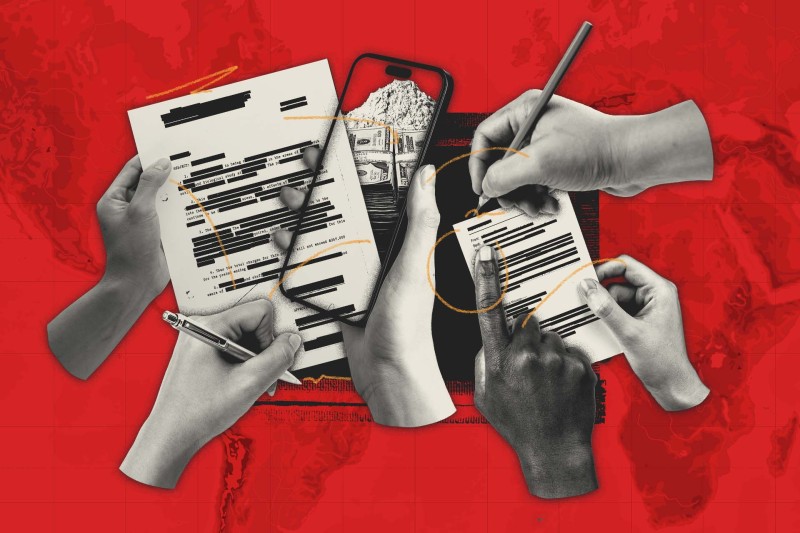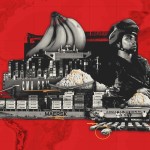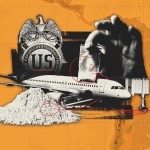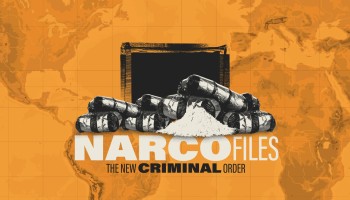To say that we live in perilous times is an obvious understatement. The destruction of the environment, global attacks on democracy, and armed conflicts from Ukraine to the Sahel to Israel and Gaza grab headlines every day.
But we also live in the aftermath of another great fight that has already been lost: the so-called “war on drugs.” This battle was waged for over half a century at great human cost — and with few victories against global drug trafficking gangs to show for it.
In fact, drug consumption has increased worldwide, according to the United Nations. Organized crime groups have made staggering profits and become powerful political forces in many parts of the world, all at the expense of the many who suffer from trafficking-related violence and the healthcare crisis that comes with the consumption of narcotics.
Behind the sorrow and the suffering are organized crime groups whose activities span practically every illegal pursuit known to humankind. Though transnational in nature, their crimes are often investigated and prosecuted in isolation by law enforcement agencies confined within their national frontiers.
About the Project
The globalized nature of organized crime means that this fragmented approach does not yield sufficient results. Police forces and intelligence agencies have limited visibility into criminal ecosystems that expand beyond their jurisdictions.
Their field of vision is further narrowed by geopolitics, political feuds, and the lack of cooperation from countries where criminals have become embedded in government. Just think about how unlikely it would be for Iranian police to work hand-in-hand with their United States and European Union counterparts to tackle a criminal group.
Cross-border crime looks a lot different when investigative reporters collaborate across frontiers in a project such as the NarcoFiles. Unlike law enforcement agencies, journalists can swiftly form global alliances, regardless of their citizenship, and can zoom out to take a wider look at the global criminal landscape.
NarcoFiles is the largest investigative project on organized crime to originate in Latin America, a region hit hard by drug trafficking and the violence and corruption that come with it. The NarcoFiles leak handed us an unprecedented opportunity to paint a much clearer picture of how narco-traffickers build their transborder fiefdoms and how police forces are overwhelmed by their actions.
What we saw was a transcontinental criminal conspiracy where seemingly isolated narco-trafficking groups are in fact members of borderless criminal collaborations. Some of these crooked alliances are structured on tried and tested relationships, while others come together on an ad-hoc basis around common interests. It is an open-entry system where criminals continue to manufacture new opportunities for wrongdoing in both the physical and digital realms.
We also saw how criminals can use logistical, financial, and digital infrastructures made possible by enablers including corrupt politicians, bankers, accountants, lawyers, law enforcement agents, hackers, logistics experts, and even corrupted journalists.
These people often live in countries organized crime groups consider to be safe havens. They’re happy to make a profit and mark themselves safe from the violence that plagues countries such as Mexico or Ecuador, where criminals reign in blood. In many cases, they are blind to the fact that the cancer they are helping feed is metastasizing and will eventually reach them, too.
We always say at OCCRP that it takes a network to fight a network. But in the case of global drug trafficking it takes much more than that. What we are dealing with is a transnational enemy whose power has grown unchecked for far too long.
It’s about generations of ruthless criminals for whom wrongdoing is a lifestyle. It’s about criminal angel investors and old-time villains who finance new crooks waging ransomware attacks on hospitals and supplying weapons to extremists or terrorist organizations. It’s also about thieves who use the hundreds of billions of dollars generated by drug trafficking to buy the land beneath our feet, install government officials, and change laws to their advantage.
At the end of the day, organized crime represents a minority that inflicts disproportionate damage on democratic, rule-based systems. It’s a global enemy that needs to be fought and diminished for democracy to prevail.
Journalists have come together to expose this enemy with the NarcoFiles, but we need many more allies in order to make a serious difference. We need a new and global approach if we want to scale down wars fueled by corruption and organized crime. We need global institutions that are capable of dealing with the problem, and we need the left and the right to accept that this is an issue of common interest that transcends partisan fighting.
We also need technology companies to play a more active role in combating crime. Make no mistake: Criminals are very creative and, as you read these lines, they are probably developing their own large language models and artificial intelligence tools.
They always plan ahead. We have to do the same.




